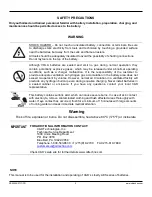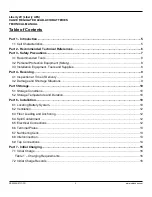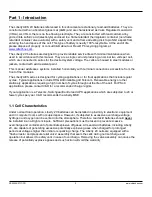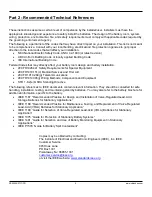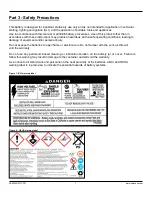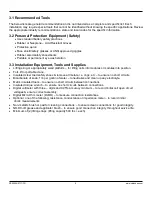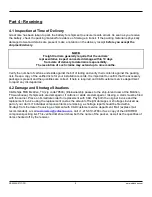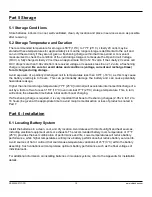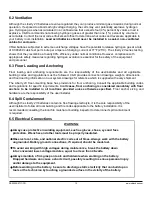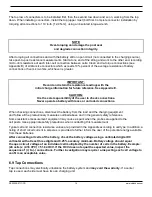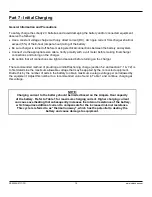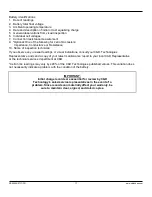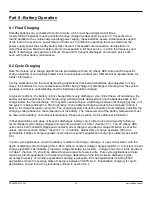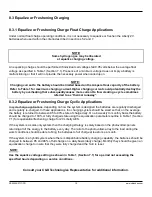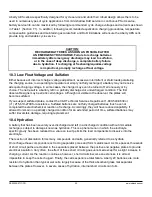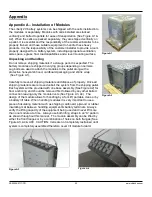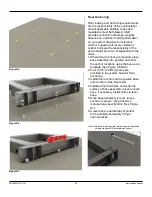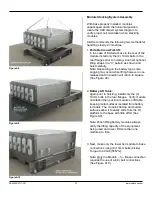
RS02250/0717/CD
16
www.cdtechno.com
7.1 Initial Charge
All cells are shipped fully charged from the factory with no need for an initial freshening or equalization
charge. The cells should be constant voltage charged at the average float voltages as noted in Table 1
below. However, when in storage or transit for an extended period (especially at temperatures above
77°F/25°C) or when the number of cells is greater than 24 cells; it is recommended the battery system be
given an initial freshening charge (see Table 1) at installation.
Table 1
– Charging Requirements
Cell
Type
Average String
Float Voltage
77
°
F (25
°
C)
Average String
Cycle Service
Voltage 77
°
F
(25
°
C)
Average String
Freshening
Voltage
Freshening /
Equalization
Charging
Time
Maximum Charge
Current
VPC
VPC
VPC
Hours
Amps per 100Ah
battery rating
Liberty AES
2.25 to 2.27
2.35 to 2.40
2.35 to 2.40
12
– 24
50-60
Notes:
a. Battery float voltage should be set at Table 1 average cell voltage multiplied by the number of cells in the battery string.
Individual cell float voltages may vary by +0.10/-0.05 volts from the average in a single string.
b. Average string float voltage must be adjusted based on temperatures which are above or below 77°F (25°C) - see section 8.4.
c. Charging time will vary due to temperature if cell temperature is below 60°F (16°C), double the charge time for initial or equalize charge.
d. If a battery load test will be performed within 90 days of installation, an initial freshening charge followed by a 72 hour float charge
(per IEEE 1187) is required to ensure full capacity.
7.2 Initial Charge Records
At the completion of the initial charge and after the cells have been on float charge for approximately one
week, record voltages of the individual cells, the total battery voltage and ambient temperature. Retain this
information in your files for future reference. This information establishes a baseline for future reference.
The information below must be recorded or refer to RS-1992 found in the Appendix E. Make a photocopy of
the form and use it whenever necessary to record readings taken on the battery.

